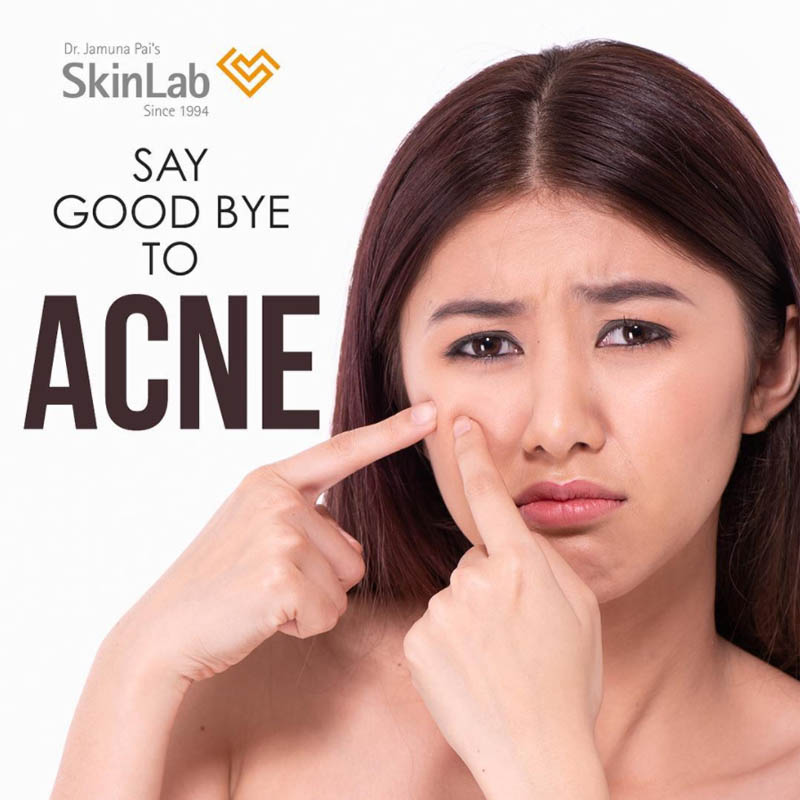The dilemma of acne is something that just does not leave. We have all dealt with it during our teens, all through adolescence and now having to deal with it in adult life, is the last straw! A number of adults post the age of 25-30 years deal with the problem of acne. The causes of adult acne are quite similar to teenage acne – like excess oil secretion, clogging of the pores, hormonal fluctuations, underlying medical conditions and certain vitamin deficiencies. However, one of the most common reasons for adult acne is stress. Stress is known to bring about a number of changes in the body, like thinning of hair, hair fall, uneven skin tone and even acne.
“Acne is a treatable condition. It is important to find out the chief cause of acne and treat that. Once the cause is addressed, the acne would reduce and may even stop forming. However, it is worrisome if the acne leaves behind permanent acne scars! Intentionally or unintentionally pinching the acne may cause acne scarring, which in order to improve may take multiple in-clinic treatments. It is therefore best advised to meet your physician to diagnose the underlying cause of acne, and treat it accordingly,” says Dr Jamuna Pai, founder SkinLab India.
Dr. Jamuna Pai also lists down the causes of Adult Acne:
Acne in general, whether teenage or adult, have similar causes. There are various reasons for acne flare up, both internal as well as external causes.
1. Internal Causes
- Hormonal Fluctuations: Commonly a cause in women, hormonal imbalances play a vital role in causing acne. The male hormone, namely testosterone, in some cases increases and dominates over the female hormones – progesterone and estrogen. This hormonal fluctuation is mainly experienced along with PCOS (PolyCystic Ovarian Syndrome), perimenopausal as well as post menopausal phase.
- Underlying Medical Conditions / Post an Infection: More often than not, it is an underlying deficiency/condition that brings about changes in our skin and hair. It is important to, on a 6 monthly basis, check for vitamin deficiencies like magnesium, selenium, iron, vitamin B12, Vitamin D3. Sometimes acne is also experienced post an infection like covid, other viral infections like chickenpox and some bacterial infections like typhoid.
- Medications / Types of Food: Certain medications can either aggravate or even cause acne. For example, being on medication for tuberculosis can cause acne flare-ups. Furthermore, excessive protein intake, dairy products, can also cause acne.
2. External Causes
- Lifestyle: Skin is the largest and the most external organ of the body. It reflects what we are from the inside. For our skin to look and feel healthy, it requires us to eat healthy food and sleep for sufficient hours. As seldom as it is spoken about, stress is a huge cause of various changes in the body. Even excessive smoking, alcohol consumption are major contributors to acne formation.
- Clogging of Pores: Excessive oil production is a chief cause of acne. This leads to clogging of the pores that further leads to acne. Cleansing the skin at least twice a day and getting rid of makeup before bed, helps to minimize pore clogging. Gel based skin products, and non-comedogenic make-up products should be preferred for acne genic skin type.
How can we deal with it?
Acne is one of the most common skin conditions that people deal with. The good news is that it is treatable. However, as mentioned earlier it is necessary to find out the underlying cause of it. Once your physician has diagnosed the cause, dealing with it gets simpler. There are various topical treatments including clindamycin, benzoyl peroxide, adapalene as well as certain peels and laser that help to resolve acne, besides the oral medication which may be prescribed.


